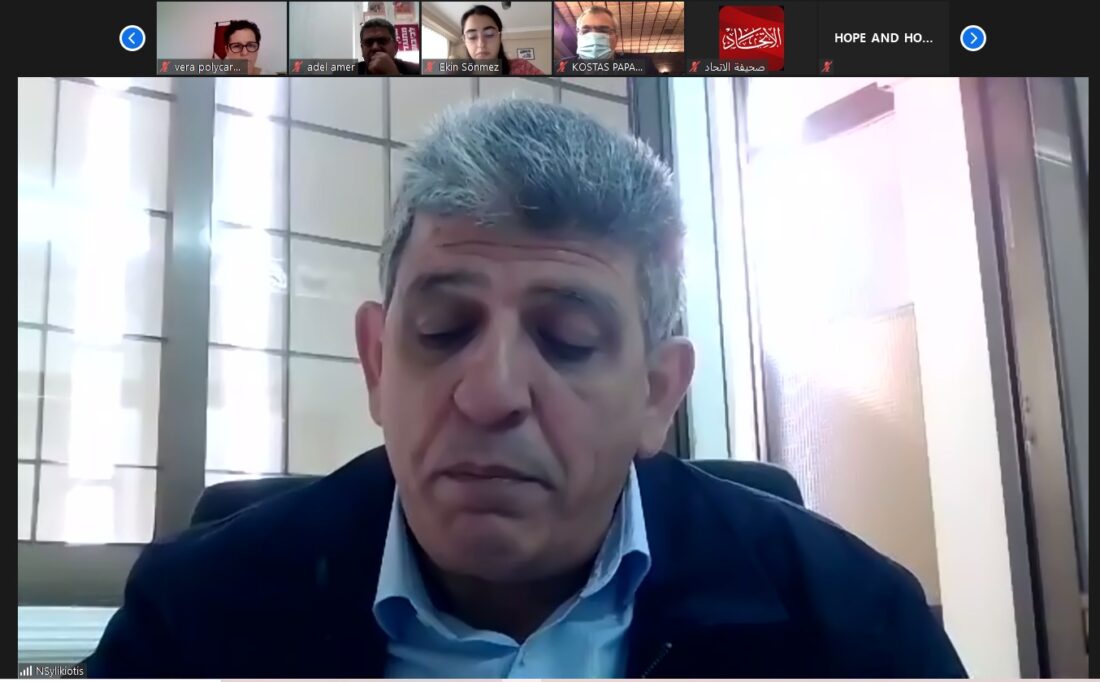
The humanitarian situation of refugees in the neighboring countries of Syria
Yiorgos Loucaides intervention at the Parliamentary Assembly of the Council of Europe
June 2018
There is no need to repeat statistical figures demonstrating that the war in Syria has evolved into an unprecedented humanitarian disaster and the biggest refugee crisis since the Second World War. However, we need to reiterate that these numbers illustrate the suffering which the West’s strategy and allies to overthrow the Syrian government has caused. Unfortunately, in such cases, it isn’t the guilty, but the peoples that are paying the price with their own blood and uprooting; with the millions of refugees that are crowded in Lebanon, Jordan, Turkey and Iraq, the overwhelming majority of whom are living below the poverty line.
First of all, we would like to endorse the Rapporteur’s appeal to the states hosting refugees to ratify, without reservations and restrictions, the Geneva Convention (1951) on the Status of Refugees; to improve national legislation so as to ensure the access of refugees to health, work and education and to strengthen policies for their integration; to emphasize and prioritize unaccompanied minors who are one of the most tragic aspects of the war. Within this framework, cooperation with the UN High Commissioner for Refugees is really valuable and imperative.
At the same time, however, I cannot but reiterate the disagreement of the European United Left with the EU-Turkey Agreement because it undermines the guaranteed right to asylum and makes refugees the subject of bargaining with the Erdogan administration.
The inclusion of Turkey in “safe countries” where refugees can be returned clashes with reality. In the first 10 months of 2017 alone, Turkey expelled 250,000 Syrian refugees, while at the same time it is building a wall on the borders with Syria and hardening its refugee reception policy. More than 90% of refugees live outside the refugee camps where UNHCR provides elementary living conditions.
By saying this, we do not ignore at all the significant contribution of the countries who are hosting refugees and we realize that so long as the war continues in Syria, their capabilities are being exhausted. That’s why, as a Member of Parliament of an EU Member State, I feel the need to stress that things would have been much better had the EU implemented a different policy as well. If it had promoted an established system based on solidarity for accommodating refugees in all the Member States, depending on their population and GDP, it could have provided relief for the refugees and infrastructures of neighboring states.
To the contrary however, a number of European conservative governments have refused to host refugees, with the result that some member states have assumed a disproportionate share of responsibility. We also underline from this podium that the EU should support the UN refugee relocation program and establish lawful and safe routes so that refugees can apply for asylum in Europe. We should just bear in mind the fact that the Union which represents 24% of the world’s GDP, hosts only 8% of the refugees, while Lebanon hosts approximately 2 million refugees, half of whom in fact are infants.




